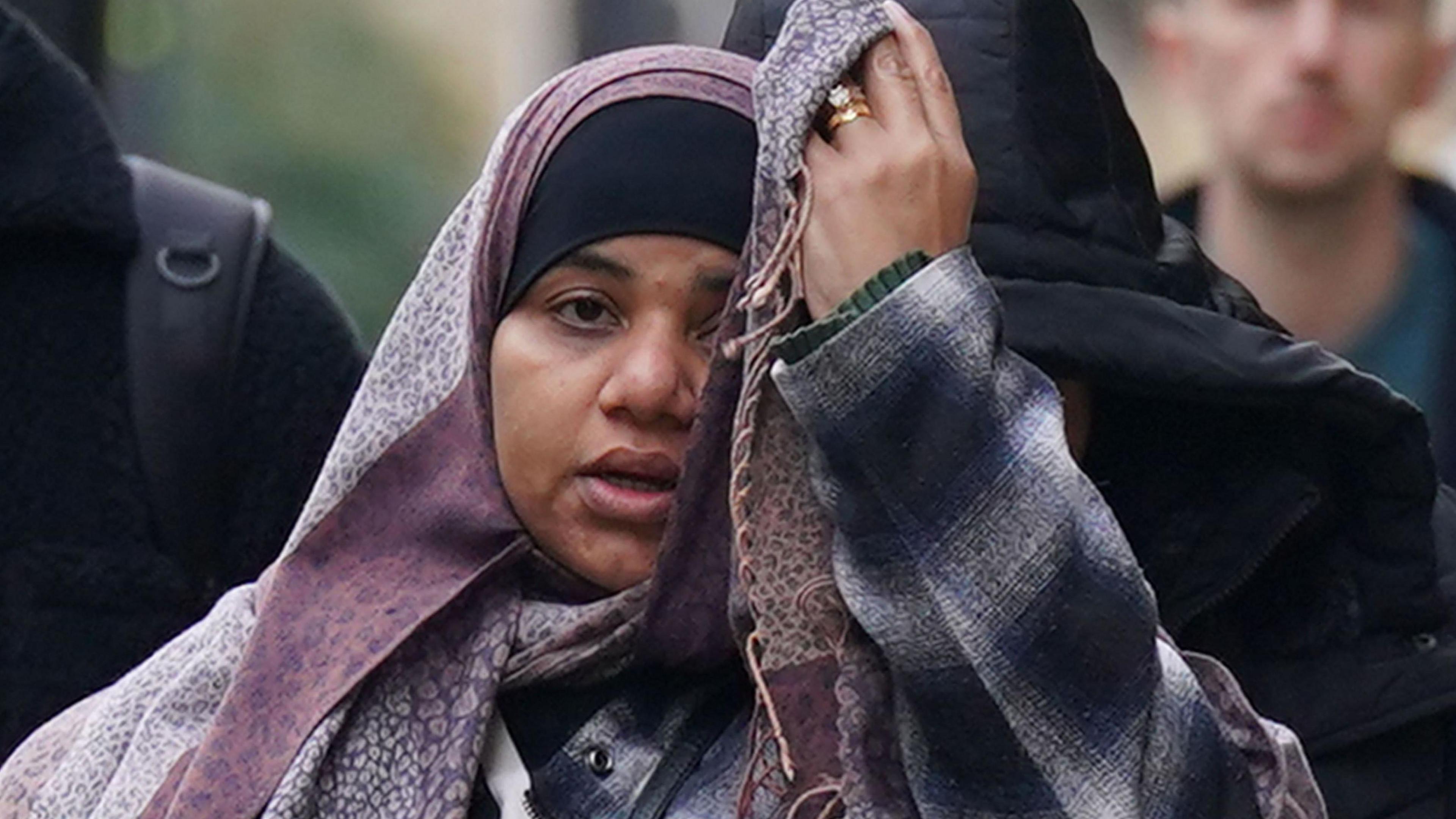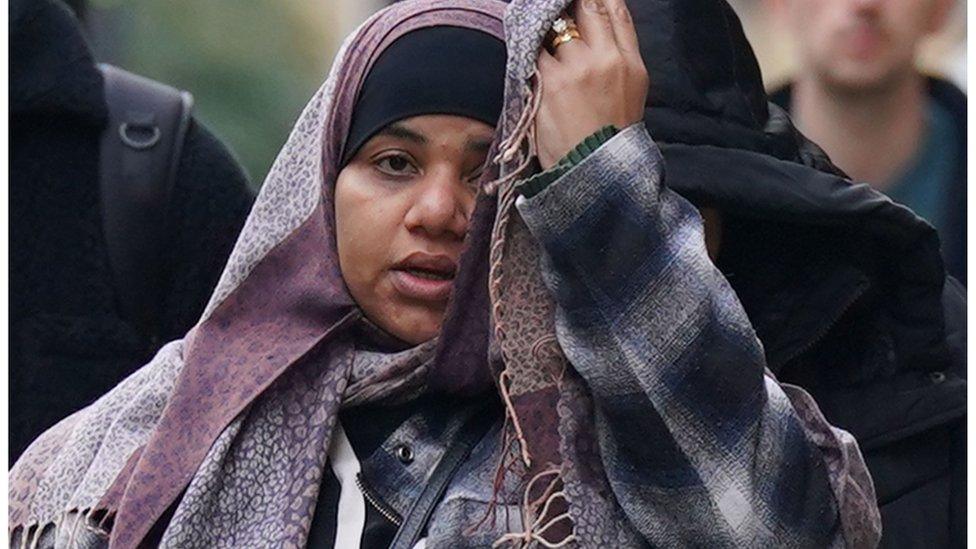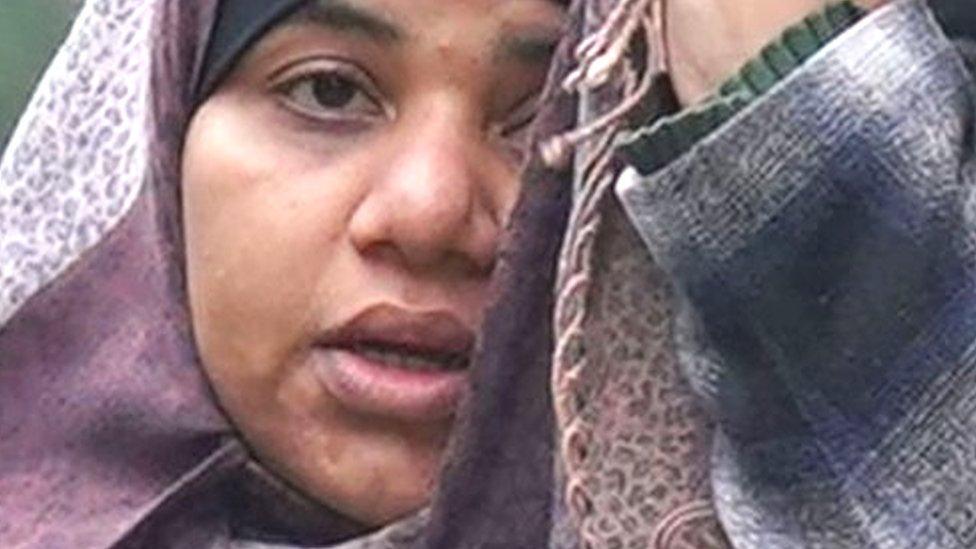Woman jailed for taking girl for FGM loses appeal

Amina Noor was the second person in the UK to be convicted under the FGM Act
- Published
A woman jailed after handing over a three-year-old British girl for female genital mutilation (FGM) during a trip to Kenya has lost a Court of Appeal bid to reduce her sentence.
Amina Noor, from Harrow, north-west London, was jailed for seven years in February following her conviction for assisting a non-UK person to carry out the procedure overseas 18 years ago.
She was the first person to be convicted of taking someone to another country for FGM and the second in the UK to be convicted under the FGM Act 2003.
Her lawyers argued that the sentencing judge had failed to understand the cultural context in which she had gone to the so-called "clinic" with the child - but the appeal was dismissed.
Warning: This article contains details some may find distressing
Noor travelled to Kenya in 2006 where she took the child to a private house for the procedure, the court previously heard.
The crime came to light more than a decade later when the girl was 16 and confided in a teacher at school.
At her Old Bailey trial last year, Noor said she was threatened with being "cursed" and "disowned" by her community if she did not take part.
She described what was done to the child as "Sunnah", meaning "tradition" or "way" in Arabic, and said it was a practice that had gone on for cultural reasons for years.
In May, Noor made a Court of Appeal bid to challenge her sentence.
Her lawyers argued that the sentencing judge had failed to consider her mitigation properly.
On Thursday, Lord Justice William Davis, sitting with Mrs Justice Sara Cockerill and Mr Justice Thomas Linden, said the child "was a three-year-old far from home when she was mutilated".
He said the mutilation "amounted to causing grievous bodily harm with intent".
The appeal judge said a prison sentence "could not have been avoided here" and rejected the argument that the sentencing judge did not properly factor in the cultural context.
'Criminalised by UK law'
Lord Justice Davis said: "FGM almost by definition is an offence committed within particular cultures.
"We are clear that the fact that FGM is considered appropriate within such cultures can be of no relevance to the seriousness of the offence.
"The practice is criminalised by UK law."
Listen to the best of BBC Radio London on Sounds and follow BBC London on Facebook, external, X, external and Instagram, external. Send your story ideas to hello.bbclondon@bbc.co.uk, external
Related topics
- Published16 February 2024

- Published26 October 2023

- Published20 October 2023
